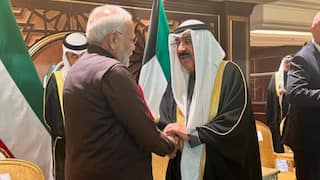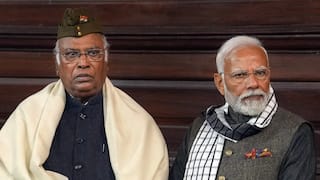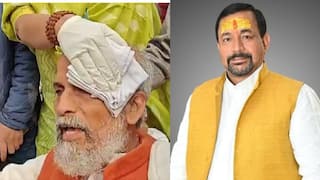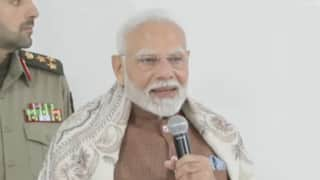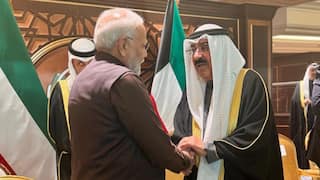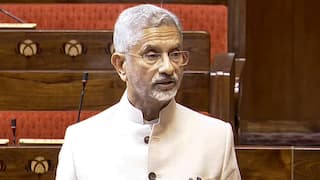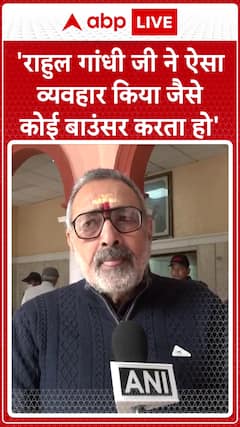India Received Support On All Agenda Items, Says Nirmala Sitharaman As G20 Finance Ministers' Meet Ends
The third G20 Finance Ministers and Central Bank Governors (FMCBG) meeting in Gandhinagar concluded with an Outcome Document and Chair’s summary comprising 26 paragraphs and 2 Annexures.

The third G20 Finance Ministers and Central Bank Governors (FMCBG) meeting in Gandhinagar concluded with an Outcome Document and Chair’s summary comprising 26 paragraphs and 2 Annexures. In a press conference after the meeting, Finance Minister Nirmala Sitharaman said that the Indian presidency agenda items received extensive support from all G20 nations.
According to Sitharaman, G20 members endorsed a ‘Roadmap for Implementation of Recommendations of the G20 Independent Review of Multilateral Development Banks (MDBs) Capital Adequacy Frameworks (CAF)’. This roadmap will help unlock more lending resources in MDBs.
"On the expert group India had constituted, the members took note of the recommendations made in Volume 1. It aimed at making MDBs capable of addressing transboundary challenges and fulfilling their development financing mandate," she added.
Additionally, Global Debt vulnerabilities were also discussed and they gained a lot of traction. It reflected the endeavour of India's presidency to get the voice of the Global South onto the G20 table. G20 members welcomed the progress achieved on various ongoing debt treatment cases, the Finance Minister said.
"There is a basket of issues on debt restructuring which continue to take place, including haircuts. Very hopeful China will be part of a common debt restructuring framework" she said adding, "We don't have the mandate to change the language in the Bali Leaders' Summit."
Further, Sitharaman said that India's G20 Presidency has brought Digital Public Infrastructure (DPI) agenda to the table. Members acknowledged the significant role of DPI in rapidly advancing financial inclusion & productivity gains, thereby transforming the lives of the poor in the country. DPI agenda has had great recognition for the achievements in the scaling up that happened in India.
"The Ministers & Governors commended India’s efforts in leveraging DPIs to accelerate financial inclusion to the last mile. The members also endorsed the ‘G20 Policy Recommendations for Advancing Financial Inclusion and Productivity Gains through Digital Public Infrastructure’ developed under the Indian G20 Presidency. These policy recommendations can help in guiding the G20 and non-G20 countries to harness the DPI for their own goals," she added.
The Finance minister also said that there's a common understanding that global consensus is required for regulating crypto assets and its effect on emerging markets.
Also Read: Driven By SME IPOs, India Leads Global IPO Chart With 80 Listings Till June 2023: Report
Under India's G20 Presidency, a key focus has been addressing the growing debt vulnerabilities faced by developing nations, exacerbated by ongoing geopolitical tensions and the pandemic. There are concerns that if these debt challenges are not effectively dealt with, they could potentially trigger a global recession and push millions of people into extreme poverty.
In December of the previous year, the World Bank reported that the world's poorest countries collectively owed $62 billion in annual debt service, marking a 35 per cent increase from the previous year's $46 billion, thereby heightening the risk of defaults.
Low-income countries are particularly vulnerable to debt distress, with some already facing dire circumstances, and debt crises are also affecting middle-income countries.
During the ministerial conference's opening day, finance ministers from G20 nations, which comprise both developed and developing countries, engaged in discussions on the global economy and associated risks. They also explored topics related to crypto assets and explored policy measures to promote green and low-carbon technologies.
Over 500 delegates, including Finance Ministers and central bank governors from G20 member countries, invitee countries, and Heads of various international organizations (IOs) participated in the meeting.
Trending News
Top Headlines
























